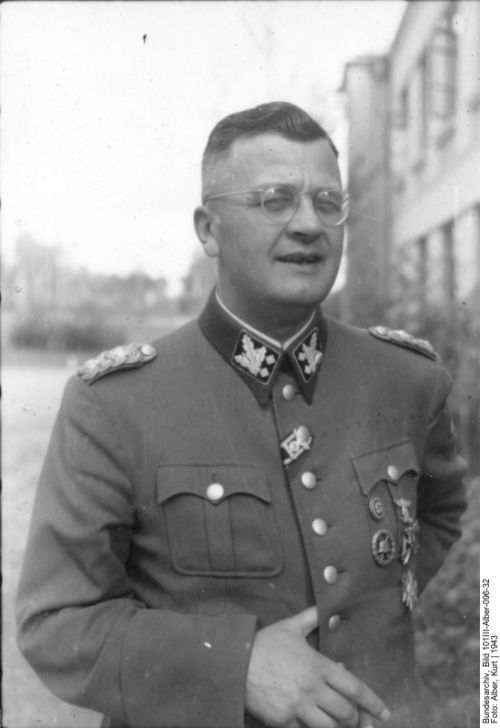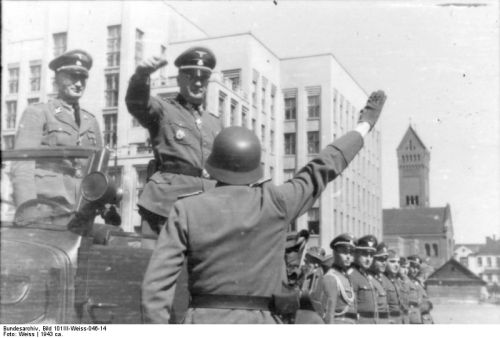Erich von Dem Bach ZELEWSKI

Erich von Dem Bach Zelewski (Bundesarchiv)
Erich von Dem Bach Zelewski was born on March 1, 1899, in Lauenburg, Pomerania. He was a professional soldier from a Juncker military family, handsome and typically East Prussian in manner, Erich von Dem Bach Zelewski served in the First World War, and then in the Freikorps and as a Reichswehr officer during the 1920's.
In the 1930, he joined the Nazi Party and a year later he was made an SS-Untersturmführer. From 1932,until 1944, he was a member of the Reichstag, representing the Breslau electoral district. After 1934, he commanded SS and Gestapo units in East Prussia and Pomerania. In 1939, Erich von Dem Bach Zelewski was promoted to the rank of SS General and two years later became a General of the Waffen-SS assigned to the Central Army Group on the Russian front until the end of 1942. During this period Bach Zelewski was responsible for many atrocities, in which he took a personal part. On October 31, 1941, after 35,000 people had been executed in Riga, he proudly wrote, 'There is not a Jew left in Estonia.' He also participated actively in massacres of Jews at Minsk and Mogilev in White Russia.

Bach Zelewski in the centre saluting his troops in Minsk (Bundesarchiv)
In July 1943, he was appointed by Himmler as anti-partisan chief on the entire eastern front. Subsequently he claimed that in this role he had tried to protect Jews from the Einsatzgruppen murder squads. Bach Zelewski was in command of the German forces which suppressed the Polish Home Army in the Warsaw Uprising which began during August 1944. Bach Zelewski was awarded the Knights Cross in connection with this operation. Bach Zelewski was held in high esteem by Adolf Hitler for his brutality and improvisational skills - he was able to conjure armies out of very unpromising material. Bach Zelewski ended the Second World War as an army commander.
At the International Military Tribunal held in Nuremburg at the end of the Second World War Bach Zelewski testified for the prosecution, denouncing Himmler and his own fellow police chiefs, which spared him extradition to Russia. In March 1951, he was condemned by a Munich de-Nazification court to ten years ' special labour,' which in practice meant being confined to his own home in Franconia. The only one among the mass murderers who publically denounced himself for his wartime actions, he was never prosecuted for his role in the anti-Jewish measures.
Instead he was arrested and tried during 1961, for his participation in the Ernst Rohm Blood Purge and sentenced to four and a half years but the trials against him didn't end there. He was indicted again in 1962, for the murder of six communists in 1933. He was tried before a jury in Nuremburg and received the sentence of life imprisonment. Bach Zelewski died in a prison hospital on March 8, 1972.
Sources
R.S. Wistrich, Who’s Who in Nazi Germany, published by Routledge, London and New York 1995
G. Reitlinger, The Final Solution, published by Sphere Books Ltd, London 1971
Photographs – Bundesarchiv
© Holocaust Historical Society 2018

